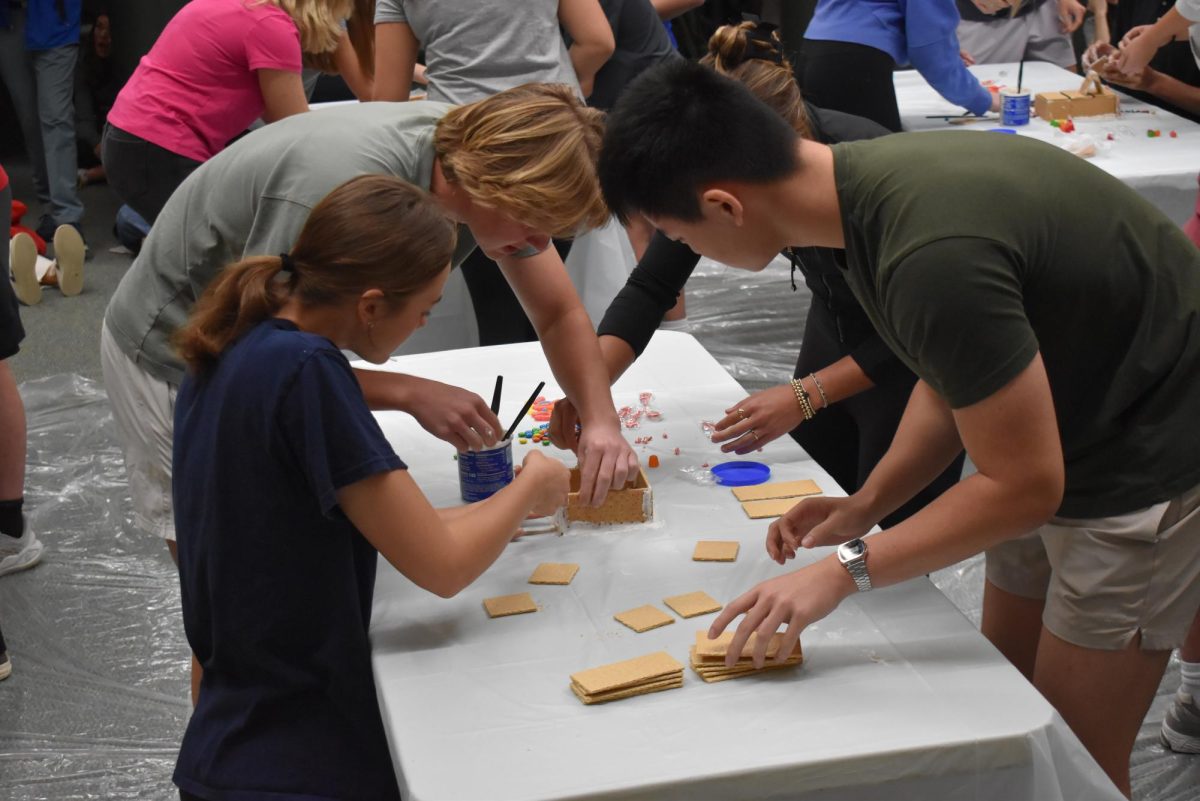Advice from seniors
Top ten tips to navigating high school (from the desks of seniors Jacob Whorf and Aiden Kovich).
Navigating high school can be like a corn maze with no exit- there are paths you can take, but a lot of them are, well, wrong.
For this reason two seniors, Jacob Whorf and Aiden Kovich, took some time to compile a list of their top ten tips to help rising Falcons plot their course.
Without further adieu, here are the topic pieces of advice for younger students from a couple of (trusted) seniors.
1. Choose appropriate classes.
Your senior year will be filled with a variety of commitments, as well as a surplus of essays you will have to write for each college you apply to. Knowing this, you should think harder than you previously have when selecting courses. Too much or too little stress can cause a serious imbalance in the way you operate on a daily basis, and you wouldn’t want your last year to be a bad one.
2. Cherish your last year with friends.
When it’s your senior year, you’ll start to realize how little time you have left to enjoy just being a kid. If you’ve had a consistent friend group, try to maximize your time together and cherish your last year. Try going to sporting events, dances, or concerts with each other. Make memories that you’ll be able to look back upon with joy.
3. Branch out.
Going along with our previous point, you should challenge yourself to try at least one new thing during your last year of high school. If you’ve done the same sport or hung out with the same people for most of your four years, trying something new could broaden your horizons and improve your last year in ways you never thought to be possible.
4. Stay diligent and don’t let senioritis get the best of you.
Staying diligent with classwork needs to be a consistent priority during your senior year. If you allow yourself to slack off, then your cumulative GPA will drop which can potentially eliminate you from consideration for scholarships. Besides this, if you get used to slacking off while still in high school, then you’ll be even less likely to perform to your full potential in college. It’s better to stay consistent in high school, so you maintain your work ethic and save yourself from later stress.
5. Don’t apply to too many schools.
When you read this question, you may be thinking just the opposite: “What? Why shouldn’t I apply to as many schools as possible? Wouldn’t that increase my chances of getting accepted at a solid school?” Well, trust us on this one: applying to too many schools means paying too many application fees, writing too many essays, applying for too many scholarships, and then making too many decisions when it comes time to finally pick your new home. Do yourself and your parents a favor and narrow your choices down to a select few schools before you start applying.
6. Put time into extra-curriculars.
When it comes time to apply to colleges, they will ask to see how you spent your freetime. Colleges want to see an applicant that has involved themselves with sports, volunteer work, leadership, and summer programs. Most importantly, admission officers want to see consistency. Find some things you are passionate about and start early. You’ll thank yourself.
7. Form relationships with your teachers.
In order to make those really challenging classes a little easier, asking questions is a must. Don’t be afraid to send your teacher a SSES message – talk to them before class, during class, or after class. Taking the extra time to assure your understanding should boost your performance.
8. Don’t let yourself become overwhelmed by the application process.
Applying to schools can be stressful, however, one thing that’ll increase the stress is procrastination. Earlier is better, so don’t wait to begin working on your essays.
9. Set goals for yourself.
Whether it’s the short term or long term, setting goals for yourself can be a useful tool to stay on track. Planning out what needs to be done in order to get into your dream school will help you do just that.
10. Get a job.
Getting a job can be a productive way to fill your free time after school and over the weekend. Aside from the spending money you earn, a job is a great way to show colleges your work ethic, responsibility, and time managing skills. You will also learn how to work under someone, giving you valuable work experience.
















































